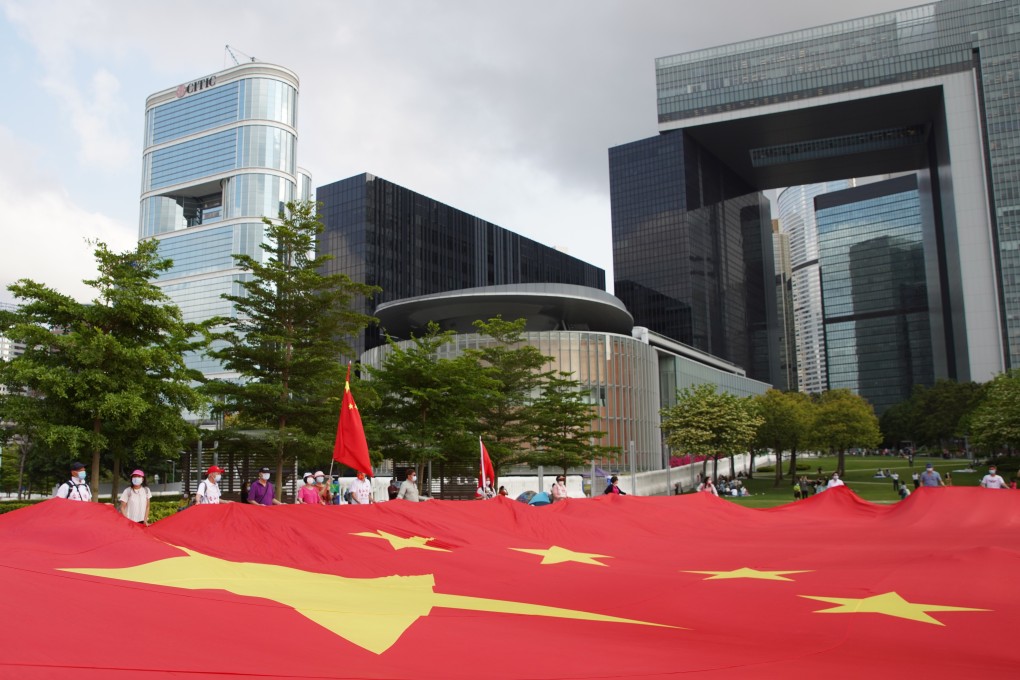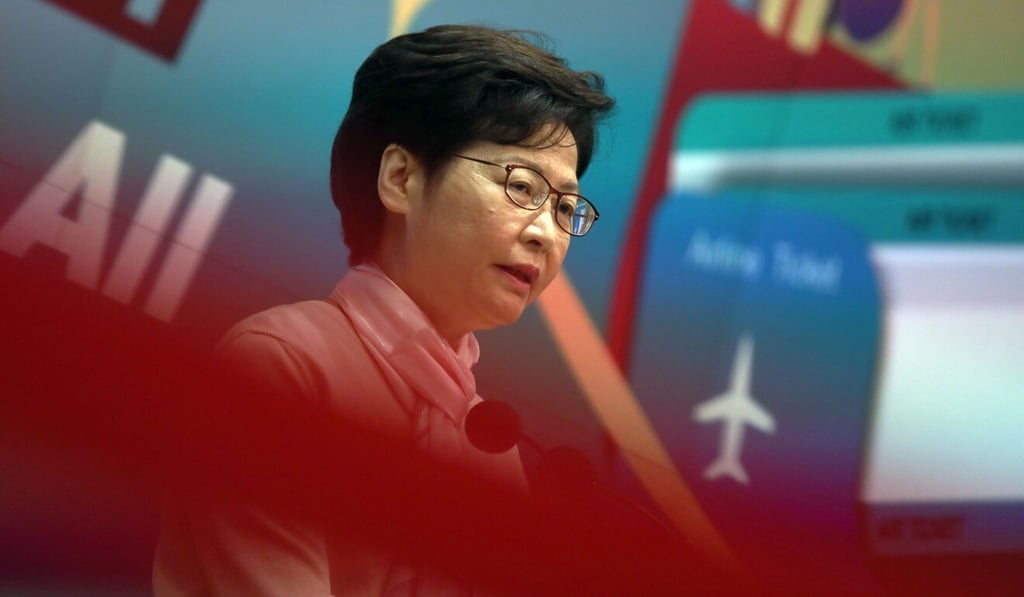Advertisement
Beijing’s anti-sanctions law will give US, others ‘a taste of their own medicine’, Hong Kong leader Carrie Lam says
- Citing first-hand experience, Lam accuses Western countries of violating international norms with their own sanctions
- The anti-sanctions law will give targeted entities the ability to report damages and sue for compensation in Chinese courts
Reading Time:3 minutes
Why you can trust SCMP
70

Hong Kong’s leader on Tuesday said Western governments would get “a taste of their own medicine”, citing her personal experience in being targeted by them, as she welcomed a new anti-sanctions law to be passed by Beijing.
Chief Executive Carrie Lam Cheng Yuet-ngor, who has been sanctioned by Washington along with some of her top officials and police officers, hit back at the United States and its allies, saying the imminent law would provide legal grounds for Beijing to retaliate.
“The Hong Kong government has first-hand experience regarding these sanctioning acts,” she said, explaining why her administration “welcomed the move very much”.
Advertisement
“There is a saying: ‘Let others have a taste of their own medicine’,” she added. “I believe any Chinese person who upholds the sovereignty, dignity and core interests of our country should feel the outrage in their heart.”

Advertisement
China’s top legislative body, the National People’s Congress Standing Committee, is set to pass the anti-sanctions law on Thursday following a second reading on Monday.
Advertisement
Select Voice
Choose your listening speed
Get through articles 2x faster
1.25x
250 WPM
Slow
Average
Fast
1.25x